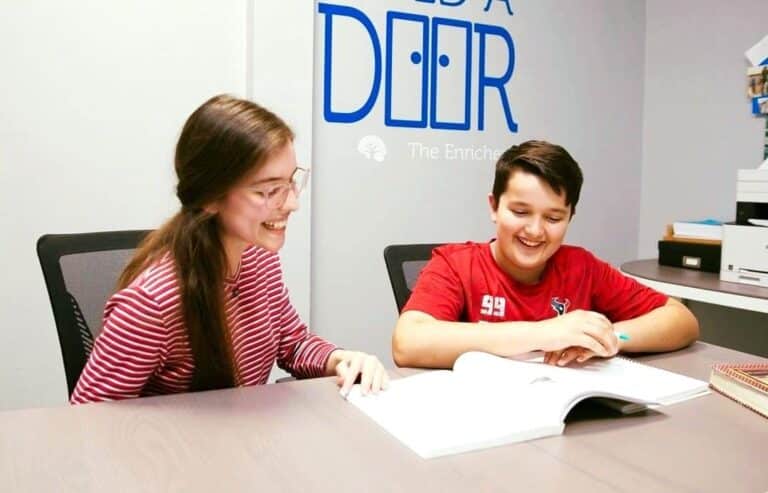At this point in the school year, your student has probably been away at college for a few weeks, and may even be planning to return home for the first time over the long weekend. You might have asked them how their first day of classes went, or waited to speak with them until after their first week, or you might be eagerly waiting to learn about how college has been going for them so far over this Labor Day weekend.
There are, of course, as many college experiences as there are students who go to a university, but there are a few things that most share, and the hectic start to a student’s first semester is one of them. Even if your student found their classes relatively easily and made it to all of them on time, there is so much going on at the start of the semester that it can easily become disorienting, and that confusion can cause your student’s grades to suffer as the semester progresses. That confusion is totally understandable because your student will be expected to review rubrics, submit assignments, and prepare for exams with comparatively little support compared to what they received in high school. Your student’s success then relies heavily on developing a group of skills known as executive functioning skills.
Put simply, executive functioning skills are what allow us to focus, make decisions, switch between tasks, manage our obligations, and plan ahead. No one is born with them, but they can be cultivated with intention and support.
Time Management
Effective time management is incredibly important when juggling high school obligations, and it becomes even more important while juggling overlapping class projects, homework assignments, and social obligations at college. At its core, time management is about knowing how much time to allocate to a specific task and when to allocate it. It’s important that your student knows that they have a test coming up, but being able to accurately estimate how much time they need to commit to studying and when they’ll be able to study during the week leading up to the exam is even more important.
How you can support your student: More than likely, you’ve already had a conversation with your student at some point about how they manage their time, but you might walk them through how you make sure you complete a major deliverable on schedule at your job. You could also help them plan for one of the major projects they’ll be turning in at the end of the semester. Help them break up that project into smaller tasks and set their own due dates for completing each smaller task. And, if they don’t have one already, be sure to get them something The Enrichery believes no student should be without: a paper planner.
Self-Motivation
Being able to identify smaller project tasks and set timelines for them is a crucial part of doing well in college coursework, but having the follow-through to complete and turn in those assignments is a separate executive functioning skill. Self-motivation is exactly what its name implies: Your student’s ability to do something without external influence. That skill doesn’t just help them to study regularly, start researching for a midterm paper, and go to their professor’s office hours; it also helps them with everything else going on around their education: preparing healthy meals, doing chores, and exercising regularly.
How you can support your student: There’s a Catch-22 to helping your student develop self-motivation: If you’re the one pushing them to do something, it is no longer self-motivated. Some research even shows that harping on your student doesn’t improve long-term outcomes—particularly if your student is neurodiverse. Instead, you might ask them what would help them feel motivated and if you can support them. Often, self-motivation can come from the habits formed by committing to activities they already like—so encourage them to build those interests and praise their motivation when you see it. Those positive habits can often be translated over to tasks they find less interesting.
Metacognition
Out of the executive functioning skills, metacognition might be the most important for a student’s success when they move into upper-level coursework. Unlike time management or self-motivation, it isn’t a familiar term to most people. While there is quite a bit of complex research into metacognition, the skill is pretty straightforward: It’s just your student’s ability to think about their thinking process. Put another way, are they able to reflect and identify the study habits, time management strategies, and research processes that worked for them? Why did they work? Why did less effective strategies not?
How you can support your student: As noted above, metacognition isn’t a skill many people think about regularly—it may even be a completely new concept to you—and that’s likely true of your student also. To begin, you might introduce the idea of thinking about how you think to your student. If an exam went well, you might help them identify what concepts or sections they actually did well on in the test. Did they study differently for that content? Was it the format of the questions that they found easier? Similarly, if they did poorly on a paper, help them identify what caused problems for them while writing. Can they create a plan for the future to help them have greater success?
There are many executive functioning skills in addition to the ones covered here, and all of them can help your student thrive academically and personally throughout their time in college. If you think your high school student would benefit from developing their executive functioning skills before college, consider enrolling them in The Enrichery’s executive functioning sessions or contact us to learn more about how we can help your student develop the skills they need to do their best while at college.





